#Hybrids
Lincoln to Become the Next 'Electrified' Premium Brand: Report
It’s getting to the point that if you’re not a premium automaker promising some sort of brand-wide electric propulsion revolution, you’re not a premium automaker. Volvo has announced it’s going all-electrified (not necessarily electric) in short order. Maserati and Aston Martin are headed in a similar direction.
Is Lincoln the next luxury brand to ditch gas-only powertrains?
Not quite, but Ford’s luxury arm is planning on endowing every model in its lineup with an available hybrid powertrain, according to three sources who spoke to Reuters. It’s a plan very similar to the one Jaguar Land Rover announced just yesterday. While the completion date for Lincoln’s lineup electrification is 2022, the brand might not stop at just hybrids and plug-ins.
Ford's Planning to Make Its Largest SUVs Greener (and Its Smallest a Lot Greener): Report
Despite festooning its large utility vehicles with the latest and greatest fuel-saving technologies — turbocharging, dual injection, 10-speed automatics — Ford isn’t finished reducing the thirst of its big SUVs.
According to sources with knowledge of the automaker’s product plans, the push for better MPGs includes giving those gas-fueled engines a break once in awhile. Care for an extra motor in your Expedition or Navigator?
If Current Trends Hold, the Toyota Prius Will Not Be America's Best-selling Hybrid in 2018
If current marketplace trends hold, the Toyota Prius will not be America’s best-selling hybrid by next year.
The steep rate of decline experienced by the Prius in 2017 is no surprise. For one thing, it’s a continuation of the decline we saw earlier in the fourth-gen Prius’ tenure. For another, there are new Prius competitors, such as the Hyundai Ioniq and Toyota’s highly efficient 2018 Camry Hybrid. But the Prius’s rapid slide — sales are down by a third so far this year — is also what Toyota predicted at the turn of the calendar.
Yet even if the rate of Prius decline suddenly and unexpectedly slows, it’s difficult to imagine a scenario in which the Toyota Prius, long the dominant hybrid in America, holds onto its crown as the top seller for long.
The victor in 2018 will, however, almost certainly be a Toyota.
QOTD: Take the Helm at Fiat Chrysler - What Models Get the Electrified Treatment?
As we told you yesterday, Fiat Chrysler Automobiles CEO Sergio Marchionne is spooked. He can’t count on diesel engines for fuel economy gains anymore — at least, not for long. With governments big and small braying for lower emissions and cracking down on the use of diesel vehicles, FCA’s future lineup requires a gas-sipping solution.
And so, after sitting on the fence for years, the Auburn Hills automaker (which still carries a big, albeit shrinking, debt) has given in. It’ll pour money into electrifying its lineup. In five years, 50-percent of its models should boast some form of electric propulsion, Marchionne claims.
As we’ve learned from the past, FCA’s product promises — and especially its timelines — carry a big grain of salt. But let’s say the company sticks to its goal. And, because this question can go any way the author chooses, you’re replacing Marchionne at the helm.
Sergio Warms up to Electrification, Even As FCA's Light-duty Diesels Get the Green Light
It’s no secret that hybrids and fully electric vehicles are about as appealing to Fiat Chrysler Automobiles CEO Sergio Marchionne as a crisp, button-up shirt. The FCA boss once famously railed against his company’s sole electric offering — the tiny, money-losing Fiat 500e — for losing $10,000 for every unit sold. Placating California doesn’t come cheap.
Still, Marchionne isn’t alone in distrusting the plug. Subaru and Mazda have shown a similar aversion to electrification, though even those automakers concede it’s a losing battle. In a conference call with investors late last week, Marchionne admitted defeat, outlining a plan to add electric motors to a significant chunk of FCA’s fleet in the coming years. One division stands to go the way of Volvo, with electric motors planned for each new car introduced after 2019.
What prompted the shift in thinking? Diesel, and the public’s growing distrust in compression-ignition engines.
Hyundai Ioniq Sales Are Low, Inventory Ramp-Up Is Slow, Kia Niro Is the One Making Dough
Since arriving early this year, Hyundai Motor America has managed only a meager 4,881 sales of its Prius-fighting Ioniq. Hyundai is certain there are far more Ioniq sales that could occur, however, if only Hyundai had the Ioniqs to sell.
Supply isn’t just tight — the Ioniq Electric is essentially nonexistent at Hyundai’s showrooms in California, the only state where it’s (supposed to be) available.
Yet while Hyundai awaits greater Ioniq inventory, the lack of which is clearly to blame for the low volume to date, it’s becoming increasingly obvious that Kia came out on top in this deal.
Fiat Chrysler Thinks Americans Outside of California Don't Know What the Pacifica Plug-in Hybrid Is
It’s a fact that California contains half of the country’s electric vehicles and a solid chunk of America’s hybrids, but that doesn’t necessarily mean residents of the other 49 states can’t tell a plug-in hybrid from a turnip.
As all-electric range grows, plug-in hybrids have begun eclipsing conventional hybrids in the U.S. marketplace, enticing buyers with the prospect of leaving the gas engine shut off (potentially) for the whole commute. After hopping on the green bandwagon with its Pacifica Hybrid, Fiat Chrysler Automobiles was able to boast of having the only plug-in minivan in North America.
Only, it won’t boast about the “plug-in” part anywhere except California. Nope, you won’t hear the company call it a plug-in in New York City, or Seattle, or Chicago. Not in Vermont or Georgia, either. Apparently those people just can’t handle it.
Pending Battery Armageddon Ready to Doom Future EV Production
Practically every major manufacturer is touting electric cars as the future of automobiles. There’s good reason to believe them.
With few exceptions, automakers are aggressively pushing toward battery driven vehicles to meet ever more stringent regulatory demands. Several brands plan on fleet-wide electrification within a few years and a handful already snub internal combustion engines entirely. But there may be a massive problem on the horizon ready to handicap the greener future many of us were prepared to embrace.
Volkswagen, a company that has been promoting its own electric revolution in the wake of its diesel emission fiasco, is anticipating a serious lithium-ion battery shortage by 2025. Based on targets of achieving 25 percent of Volkswagen’s total volume from electric vehicles in 10 years, Ulrich Eichhorn, VW’s head of research and development, dramatically increased projections made 13 months ago.
Previous estimates from the company had the number set at 150 gigawatt-hours of electricity.
“We will need more than 200 gigawatt-hours,” Eichhorn stated on June 30th during a presentation at Volkswagen’s proving grounds north of Wolfsburg.
EPA Says a Chevrolet Volt Is Barely Greener Than a Toyota Prius
If the Chevy Volt and Toyota Prius are presented as solutions to cut greenhouse gas emissions, it may be a toss-up as to which one wins.
This is according to the U.S. Environmental Protection Agency’s fueleconomy.gov website, which lets consumers determine tailpipe plus upstream emission. The difference on a nationally averaged basis is negligible, while regional variations see one car or the other pulling ahead.
Mercedes-AMG Fans Need to Learn a New Number - '53'
While we knew Mercedes-Benz’s AMG sub-brand had plans to dabble in electrification for upcoming performance models, details of what that could mean for the sub-brand’s products remained pretty thin on the ground.
Daimler R&D head Ola Källenius explained back in January that future AMG-badged vehicles will gradually become “more and more electric.” Never mind the limited-production Project One hypercar that’s in the works — that model is just a plaything for the Dubai set. Well, now we know exactly what AMG has planned for the new rung in its model range, and it indeed makes use of charged particles to lend some extra grunt to the overall package.
It also brings a very sweet inline-six to the table. Baby steps, people.
Study Shows Nearly Nine in 10 Americans Want Better Fuel Economy, But There's a Problem
A recent study from Consumers Union — the public policy and advocacy division of Consumer Reports — shows continued interest among U.S. residents in seeing automakers improve fuel economy figures, even as gas prices remain fairly low.
While this should come as a shock to no one, nearly nine in 10 surveyed consumers agreed automakers should continue improving fuel efficiency standards on all vehicles. As well, only 30 percent believed manufacturers actually cared about lowering fuel costs for their customers.
This might be true but, then again, why would automakers do such a thing when the general populace has essentially turned its back on economical passenger cars? With little incentive to sell them, especially if the Trump administration alters 2025 emission targets, any top-tier automaker focusing exclusively on building MPG-focused automobiles would be placing itself at major financial risk.
The survey indicated fuel economy as the area perceived to possess the most room for improvement in modern vehicles. However, consumers have not used their wallets to bolster economy car sales. There appears to be a disparity between what the public claims to value and how it actually behaves. At a minimum, consumers may have misunderstood everything it would take to see fleet-wide fuel consumption decline. If they want to see higher MPGs, they’re going to have to make some sacrifices and the survey doesn’t allude to that fact.
Get Ready to Hear About the 2020 Ford Mustang All The Time for Three Years
Ford Motor Company, in a tremendously public product planning moment, revealed at the beginning of 2017 that the automaker would produce an F-150 Hybrid, Transit plug-in hybrid, and a Mustang Hybrid by 2020.
Then-CEO Mark Fields said at the time, “Ford is committed to being a leader in providing consumers with a broad range of electrified vehicles.” But now that Ford revealed plans for the 2020 Mustang Hybrid, the Blue Oval has a three-year gap in which to talk about a car that doesn’t yet exist.
How to talk about it now, three years prior to launch? Ford Canada is placing promoted ads on Twitter that are endlessly popping up in my feed.
The Mustang Hybrid is not shown. But the future earns a prominent mention.
Fiat Chrysler Seems to Have Cleared the Pacifica Hybrid Production Hurdle
Conflicting reports claim Fiat Chrysler Automobiles has either restarted, or is poised to restart, production of the Pacifica Hybrid minivan in Windsor, Ontario.
This comes after a tumultuous month for the automaker’s headline-grabbing plug-in minivan. First, a voluntary safety recall saw all Pacifica Hybrids built to date recalled for faulty inverter diodes, following incidents in which several vehicles lost power while underway. The recall then led to the shadowy shutdown of hybrid minivan production.
Volvo's Polestar Might Become Separate Performance Brand for EVs
Despite being Volvo Cars’ official performance arm since 2015, Polestar has always felt like a separate entity. Its current offerings for the North American market are limited to amped up versions of the S60 and V60 — distinctive in personality and produced in extremely limited quantities. However, Volvo’s parent company Geely wants to make a change, converting Polestar into its own global performance brand focusing on, get this, electric cars.
Apparently, Geely wants Polestar’s future role to mimic Mercedes’ AMG by having it continue to produce modified Volvos while also honing in on exclusive models singularly fixated on performance. However, if many of those are intended to be EVs, questions must be raised as to how things might change at Volvo.
Mild Hybrid System Returns to 2018 Buick LaCrosse, Joins New Transmission and Lower Starting Price
There was plenty to like about Buick’s heavily revised 2017 Buick LaCrosse when it debuted last year, but the shrinking passenger car market rubbed some of the shine off the full-sizer’s standard features and newfound efficiency. It also propelled sales further downhill.
Buick isn’t resting on its laurels for the generation’s sophomore year. For 2018, Buick’s eAssist mild hybrid system returns to the LaCrosse after a year’s absence, joined by a new transmission in V6-powered models and a starting price designed to lure more buyers into the showroom.

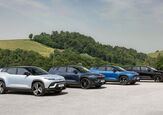
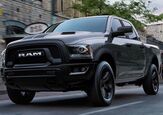
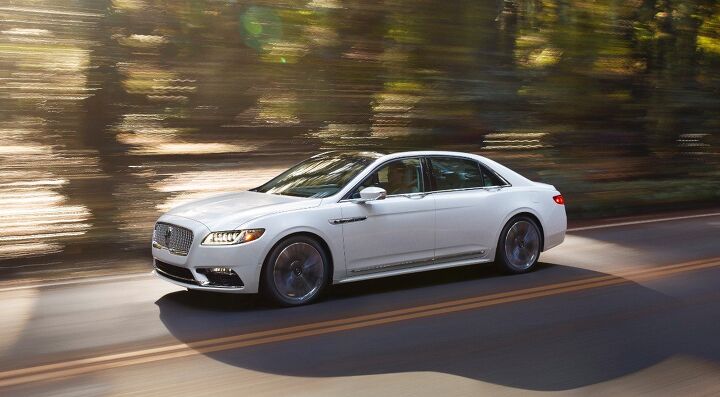
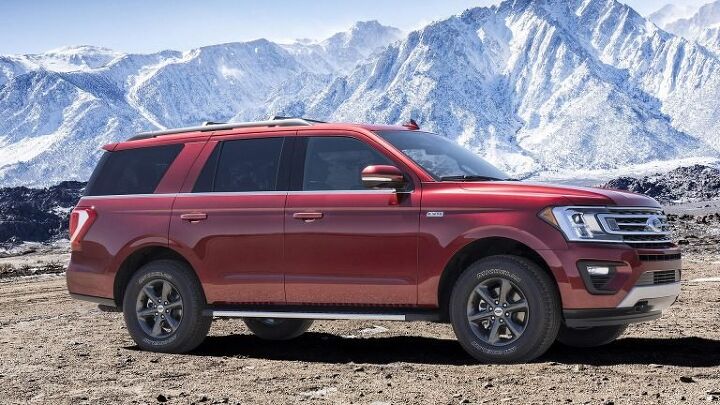

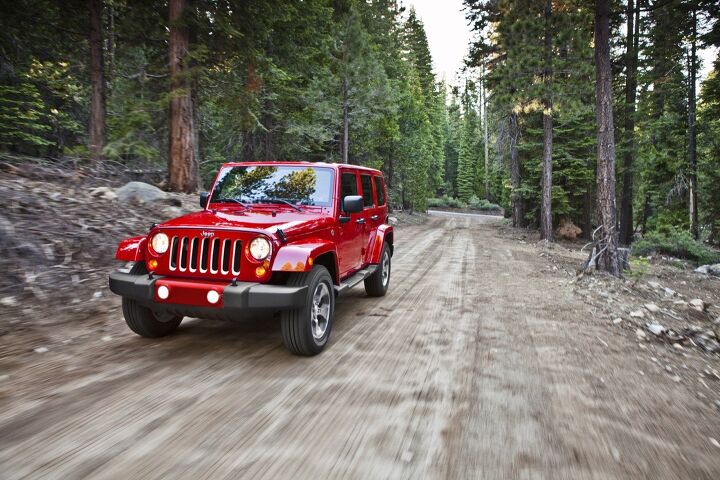



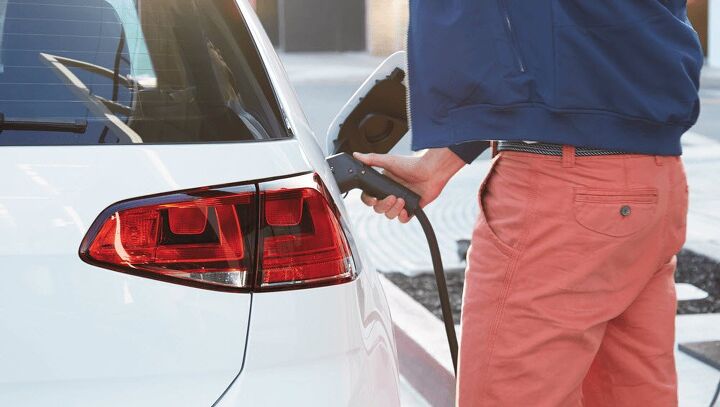
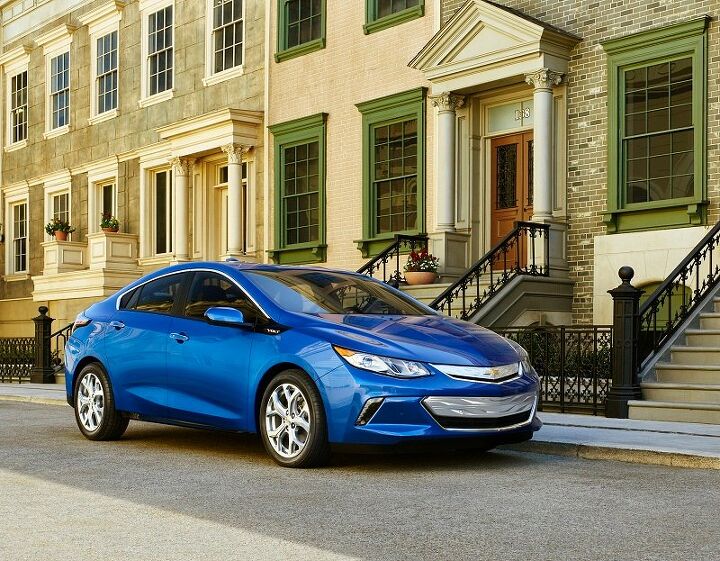
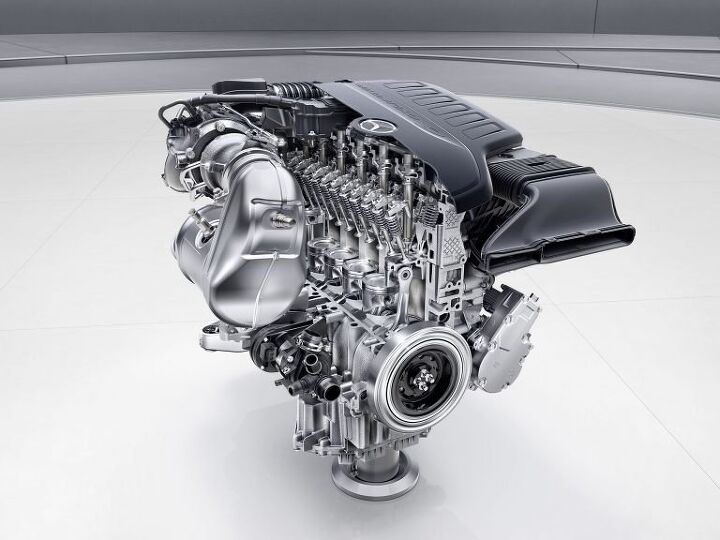

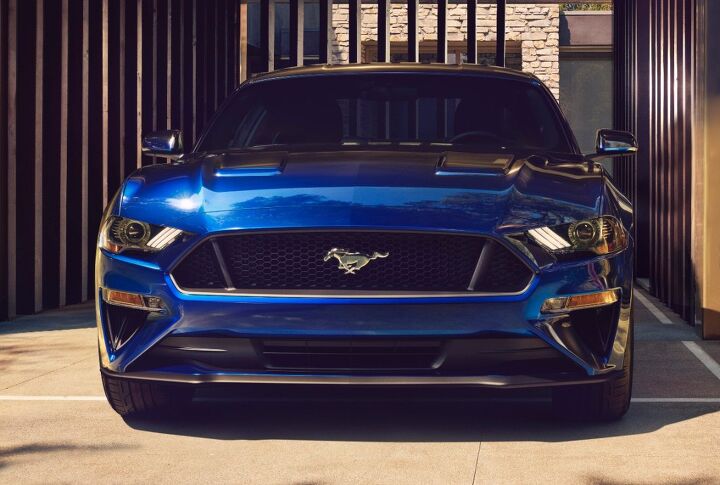

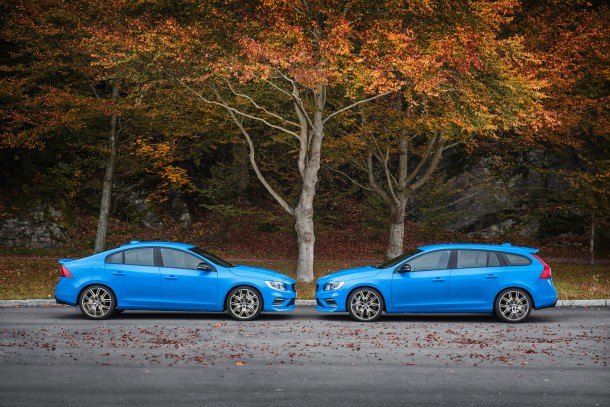
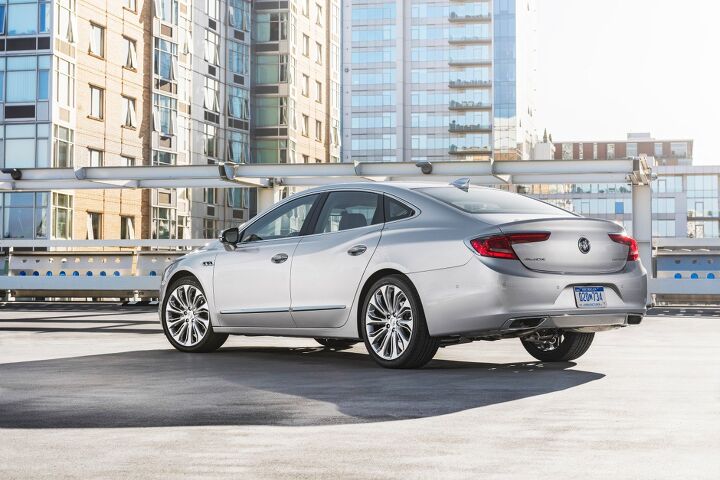












Recent Comments